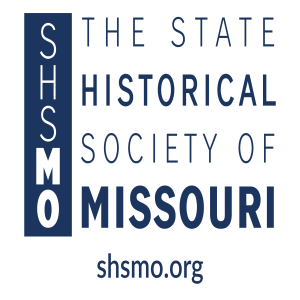
Since 1993, The State Historical Society has had a full-time oral historian recording and transcribing hundreds of oral history interviews that preserve Missouri’s history, culture, and heritage.
Since 1993, The State Historical Society has had a full-time oral historian recording and transcribing hundreds of oral history interviews that preserve Missouri’s history, culture, and heritage.
Episodes

Wednesday Sep 10, 2025

Wednesday Sep 10, 2025

Wednesday Sep 10, 2025

Wednesday Sep 10, 2025

Wednesday Sep 10, 2025

Wednesday Sep 10, 2025

Thursday May 23, 2024
Leroy Engert on Coaching Philosophy (Covering the Bases)
Thursday May 23, 2024
Thursday May 23, 2024
LEROY ENGERT: They were looking for a head coach. The program, really, was down quite a bit. To me, I took that as a challenge to go in there and try to, so-called, turn that program around. You don’t do that by yourself. You need cooperation from the administration all the way down to your assistant coaches and then your players and your parents. I think that I’m not a parent-oriented person, I’m a player-oriented person. I think that sometimes nowadays we cater to parents a little bit more. It’s parent-oriented, and it shouldn’t be. It ought to be player-oriented. I see a lot of that in little leagues as I go out and watch little league baseball. I would think, let the kid go enjoy what he is trying to do. If he wins, great. If he loses, that’s great too, because he’s learned from that experience. I see a lot of parents have a negative reaction because their son lost, or a little boy struck out with the bases loaded. Who feels worse than that little kid? That’s when he needs a pat on the back. That was the type of philosophy that I tried to carry with working with young people. More constructive criticism, rather than just criticism, per se. Where you really talked about things that they did well, and you come in the backdoor and now you try to influence them a little bit about some of the things that they needed to work on.

Thursday May 23, 2024
Jack Buck Baseball Memories (Covering the Bases)
Thursday May 23, 2024
Thursday May 23, 2024
JACK BUCK: At that time, there was a magic associated with the radio, which I feel doesn’t exist any longer. I used to listen to the broadcast from Boston, and Fred Hoey was the announcer’s name. I was a Red Sox fan. Jimmy Foxx was my idol, at that time. I used to follow them. I used to write to Joe Cronin, who was the manager, and suggest a batting order for him. Imagine that, I was ten, eleven years old telling Joe Cronin what his batting order should be. That was indicative of the interest that I had in the game. We moved to Cleveland, and I used to watch baseball in League Park in Cleveland, before they moved to the Municipal Stadium. In fact, they used to play in both stadiums, at that time. I used to watch a lot of baseball with the Cleveland club. I saw Bob Feller’s beginning. I saw Joe DiMaggio’s hitting streak snapped. I used to sit in the bleachers for a dollar. Watched the advent of Lou Boudreau on the scene in St. Louis. Some of my favorites at that time were Hal Trosky and the others. The reason I say that the magic is no longer there, the kids today are so conversant with the game. They see the players so often on television and they see them in person, that the magic of radio and the mystery of radio and the ballpark was not nearly as commonplace as it is now. The kids take it for granted. They stand outside the stadium, and they say, “Hi, Ozzie.” There’s nothing to it. Used to be a little bit further removed than it is now.

Thursday May 23, 2024
Hal Loughary Baseball Story (Covering the Bases)
Thursday May 23, 2024
Thursday May 23, 2024
HAL LOUGHARY: Back in those days, every town had a baseball team. And I'll tell you, every mine had a baseball team. I remember one time going with Dad, and I think they were playing—Dad worked—I believe he worked in #5 and they were playing #9, who was Elvins. We got down there and Dad's mine team only had eight players, so they let me play left field. Boy, that was thrill. I thought I was a big little crapper. Elmer Cook was the pitcher on the town team at Elvins, and Shy Ashby was the first baseman. Well, I knew them guys real well. They was always picking on me. I'd come to bat, somebody said something about me batting. Elmer backed off the mound and said, “Don't worry, I'm going to stick this ball right under that second rib.” He had me scared to death the time I batted. He told his infield to sit down on the ground, so that's what they did. The whole infield, sitting down on the ground, and he let me bat, because he was going to stick that ball under my rib. He says, “Don't worry about him, I'll take care of him.” And, man, I hit the ball, just got a nub in and it fell right behind third base. I was about an eighth grader. The ball fell behind third base, and I tell you, oh, Elmer Cook threw a fit out on me. Stomping the mound, kicking the rubber, you know. And then, Shy Ashby played first base. I was trying to stand on first base, and he'd push me off the bag and Elmer would throw him the ball and he'd tag me out. And umpire, “He's safe!” I'll tell you, it was a three-ring circus. Them guys, them old people, ribbed me all my life. But that was a good time to grow up.

Thursday May 23, 2024
Normal Tweed Webb Amateur Baseball Hall of Fame (Covering the Bases)
Thursday May 23, 2024
Thursday May 23, 2024
BILL MORRISON: Now, when did the Amateur Hall of Fame get started in St. Louis?
NORMAL TWEED WEBB: Well, I was inducted into the Hall of Fame March 21st, but the Hall of Fame was set up—ground work was laid about seven months before that, I would say in the fall of 1973. A fellow by the name of—he's the chairman—Don Gabbert, he said he had a vision, and he told his wife one night that he would like to do something to give recognition to the amateur boys who played baseball in the city of St. Louis. And that's the way it was born.
BILL MORRISON: From that one man.
NORMAL TWEED WEBB: That one man. He got men like Bob Broeg, Bob Burnes, and quite a few men on the Hall of Fame Committee. They are dedicated men. Anytime a group of men get together to honor amateur baseball like that there's no money to be made. To give recognition to these fellows is a tremendous thing. It's a big thing. There's nothing like it in the United States, they say. It's the first one. It's the Greater St. Louis Amateur Baseball Hall of Fame.
